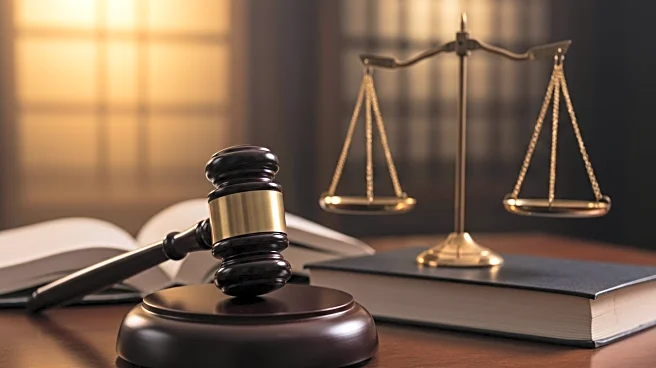What's Happening?
Devon Hogan Flanagan, a Special Assistant Attorney General in Rhode Island, was arrested for trespassing at a Newport restaurant. The incident occurred at the Clarke Cooke House, where Flanagan reportedly became defensive when asked to leave by police officers. The arrest was captured on body camera footage, where Flanagan is heard asserting her position as an attorney general and demanding the camera be turned off. Rhode Island Attorney General Peter Neronha addressed the situation, indicating that Flanagan has not been placed on leave but may face a suspension without pay. The incident has prompted discussions about the use of body cameras and the policies surrounding them.
Why It's Important?
This incident highlights the challenges and responsibilities faced by public officials, particularly in maintaining professional conduct. It also underscores the importance of body camera policies in law enforcement, as they provide transparency and accountability. The situation may lead to increased scrutiny of public officials and their interactions with law enforcement. Additionally, it raises questions about the legal and ethical implications of demanding body cameras be turned off, which could influence future policy decisions. The outcome of this case could impact public trust in the legal system and the perceived integrity of public officials.
What's Next?
The Rhode Island Attorney General's office will likely continue to review the incident and determine appropriate disciplinary actions for Flanagan. The state's police chiefs association may also revisit and clarify body camera policies to prevent similar misunderstandings in the future. Public and media attention on this case could lead to broader discussions about the conduct of public officials and the role of body cameras in ensuring accountability. The legal community and civil rights organizations may also weigh in on the implications of this incident for privacy and civil liberties.










